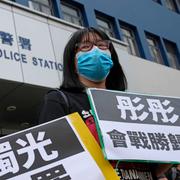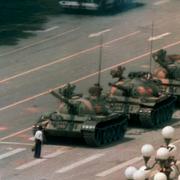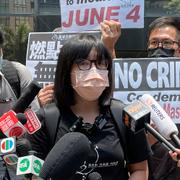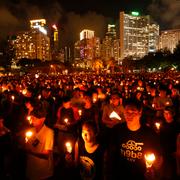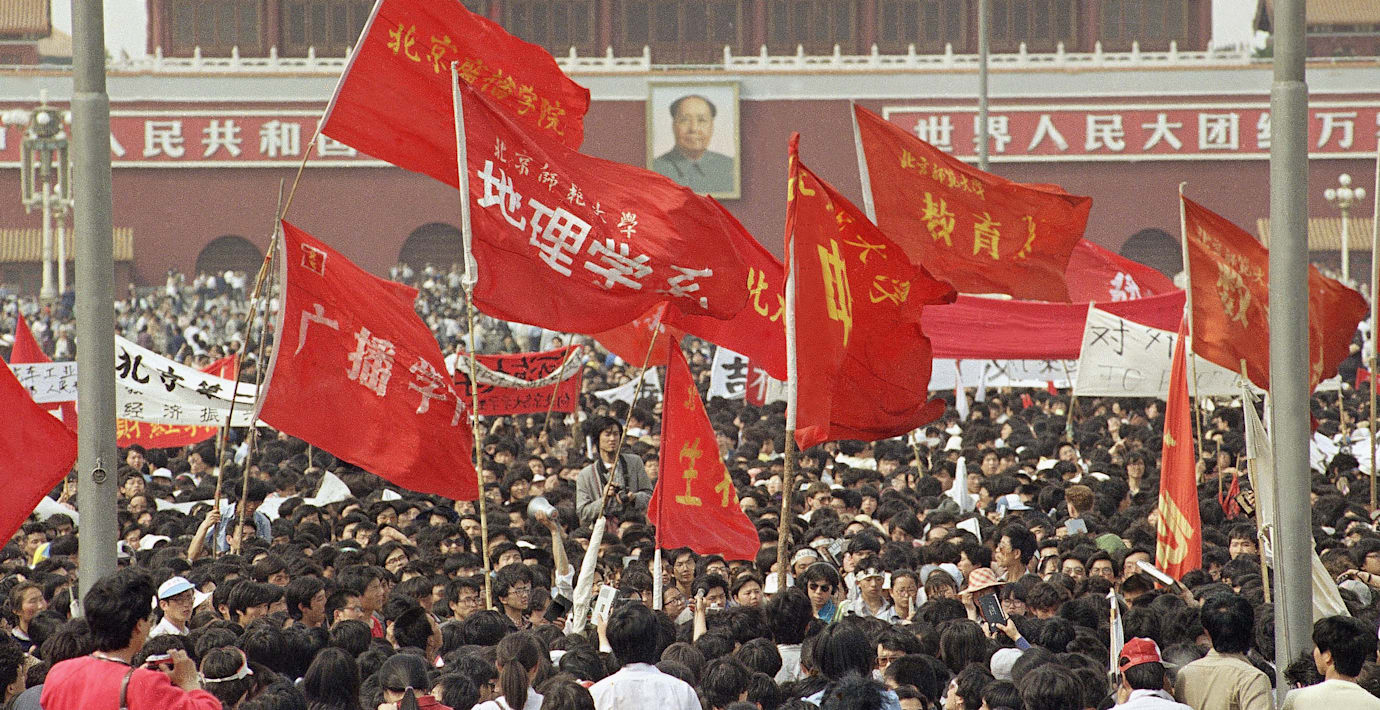
Kina 30 år efter massakern: ”Det var en korrekt policy”
I samband med årsdagen för massakern på Himmelska fridens torg försvarar Kina det blodiga tillslaget mot demonstranter, rapporterar AFP.
– Händelsen var politiskt turbulent och regeringen vidtog åtgärder för att stoppa det, vilket var en korrekt policy, säger landets försvarsminister Wei Fenghe.
Ministern säger också att Kina, tack vare regeringens agerande 1989, har kunnat uppnå stabilitet och utveckling.
Den 4 juni är det 30 år sedan studentdemonstrationerna i Peking slogs ner av armén.
Läs mer
bakgrund
Protesterna och massakern på Himmelska fridens torg
Wikipedia (en)
The Tiananmen Square protests, commonly known in mainland China as the June Fourth Incident (Chinese: 六四事件, liùsì shìjiàn) or Six four, were student-led demonstrations in Beijing in mid-1989. More broadly, it refers to the popular national movement inspired by the Beijing protests during that period, sometimes called the '89 Democracy Movement (Chinese: 八九民运, bājiǔ mínyùn). The protests were forcibly suppressed after the government declared martial law and sent in the military to occupy central parts of Beijing. In what became known as the Tiananmen Square Massacre, troops with assault rifles and tanks fired at the demonstrators trying to block the military's advance towards Tiananmen Square. Estimates of the death toll vary from several hundred to thousands.
Set off by the death of pro-reform Communist leader Hu Yaobang in April 1989, amid the backdrop of rapid economic development and social changes in post-Mao China, the protests reflected anxieties about the country's future in the popular consciousness and among the political elite. The reforms of the 1980s had led to a nascent market economy which benefited some people but seriously disaffected others, and the one-party political system also faced a challenge of legitimacy. Common grievances at the time included inflation, corruption, limited preparedness of graduates for the new economy, and restrictions on political participation. The students called for democracy, greater accountability, freedom of the press, and freedom of speech, although they were highly disorganized and their goals varied. At the height of the protests, about 1 million people assembled in the Square.As the protests developed, the authorities responded with both conciliatory and hardline tactics, exposing deep divisions within the party leadership. By May, a student-led hunger strike galvanized support for the demonstrators around the country, and the protests spread to some 400 cities. Ultimately, China's paramount leader Deng Xiaoping and other Communist Party elders believed the protests to be a political threat and resolved to use force. The State Council declared martial law on May 20 and mobilized as many as 300,000 troops to Beijing. The troops advanced into central parts of Beijing on the city's major thoroughfares in the early morning hours of June 4, killing both demonstrators and bystanders in the process.
The international community, human rights organizations, and political analysts condemned the Chinese government for the massacre. Western countries imposed arms embargoes on China. The Chinese government made widespread arrests of protesters and their supporters, suppressed other protests around China, expelled foreign journalists, strictly controlled coverage of the events in the domestic press, strengthened the police and internal security forces, and demoted or purged officials it deemed sympathetic to the protests. More broadly, the suppression temporarily halted the policies of liberalization in the 1980s. Considered a watershed event, the protests also set the limits on political expression in China well into the 21st century. Its memory is widely associated with questioning the legitimacy of Communist Party rule and remains one of the most sensitive and most widely censored topics in China.
Omni är politiskt obundna och oberoende. Vi strävar efter att ge fler perspektiv på nyheterna. Har du frågor eller synpunkter kring vår rapportering? Kontakta redaktionen
